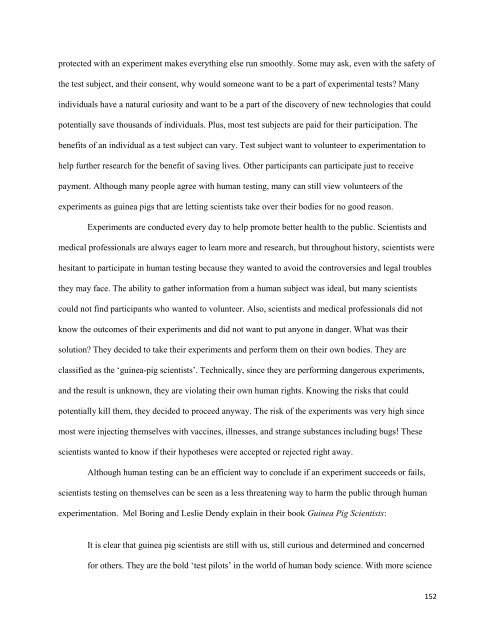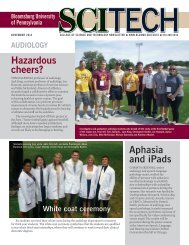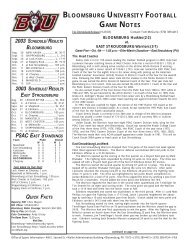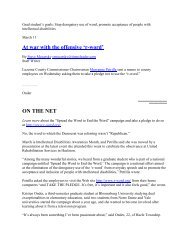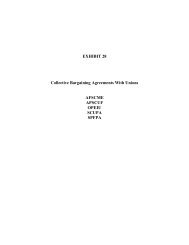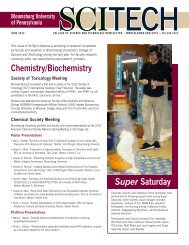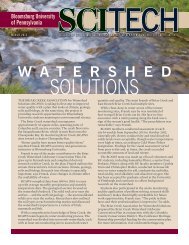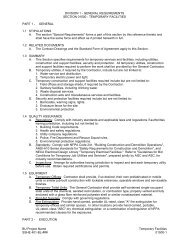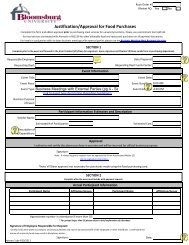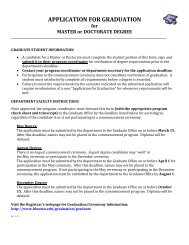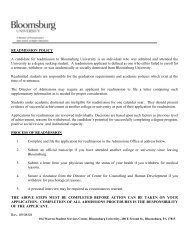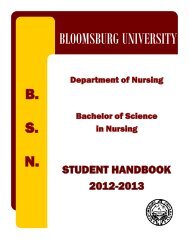Human Rights at Home and Abroad: Past, Present, and Future
Human Rights at Home and Abroad: Past, Present, and Future
Human Rights at Home and Abroad: Past, Present, and Future
Create successful ePaper yourself
Turn your PDF publications into a flip-book with our unique Google optimized e-Paper software.
protected with an experiment makes everything else run smoothly. Some may ask, even with the safety of<br />
the test subject, <strong>and</strong> their consent, why would someone want to be a part of experimental tests? Many<br />
individuals have a n<strong>at</strong>ural curiosity <strong>and</strong> want to be a part of the discovery of new technologies th<strong>at</strong> could<br />
potentially save thous<strong>and</strong>s of individuals. Plus, most test subjects are paid for their particip<strong>at</strong>ion. The<br />
benefits of an individual as a test subject can vary. Test subject want to volunteer to experiment<strong>at</strong>ion to<br />
help further research for the benefit of saving lives. Other participants can particip<strong>at</strong>e just to receive<br />
payment. Although many people agree with human testing, many can still view volunteers of the<br />
experiments as guinea pigs th<strong>at</strong> are letting scientists take over their bodies for no good reason.<br />
Experiments are conducted every day to help promote better health to the public. Scientists <strong>and</strong><br />
medical professionals are always eager to learn more <strong>and</strong> research, but throughout history, scientists were<br />
hesitant to particip<strong>at</strong>e in human testing because they wanted to avoid the controversies <strong>and</strong> legal troubles<br />
they may face. The ability to g<strong>at</strong>her inform<strong>at</strong>ion from a human subject was ideal, but many scientists<br />
could not find participants who wanted to volunteer. Also, scientists <strong>and</strong> medical professionals did not<br />
know the outcomes of their experiments <strong>and</strong> did not want to put anyone in danger. Wh<strong>at</strong> was their<br />
solution? They decided to take their experiments <strong>and</strong> perform them on their own bodies. They are<br />
classified as the ‗guinea-pig scientists‘. Technically, since they are performing dangerous experiments,<br />
<strong>and</strong> the result is unknown, they are viol<strong>at</strong>ing their own human rights. Knowing the risks th<strong>at</strong> could<br />
potentially kill them, they decided to proceed anyway. The risk of the experiments was very high since<br />
most were injecting themselves with vaccines, illnesses, <strong>and</strong> strange substances including bugs! These<br />
scientists wanted to know if their hypotheses were accepted or rejected right away.<br />
Although human testing can be an efficient way to conclude if an experiment succeeds or fails,<br />
scientists testing on themselves can be seen as a less thre<strong>at</strong>ening way to harm the public through human<br />
experiment<strong>at</strong>ion. Mel Boring <strong>and</strong> Leslie Dendy explain in their book Guinea Pig Scientists:<br />
It is clear th<strong>at</strong> guinea pig scientists are still with us, still curious <strong>and</strong> determined <strong>and</strong> concerned<br />
for others. They are the bold ‗test pilots‘ in the world of human body science. With more science<br />
152


